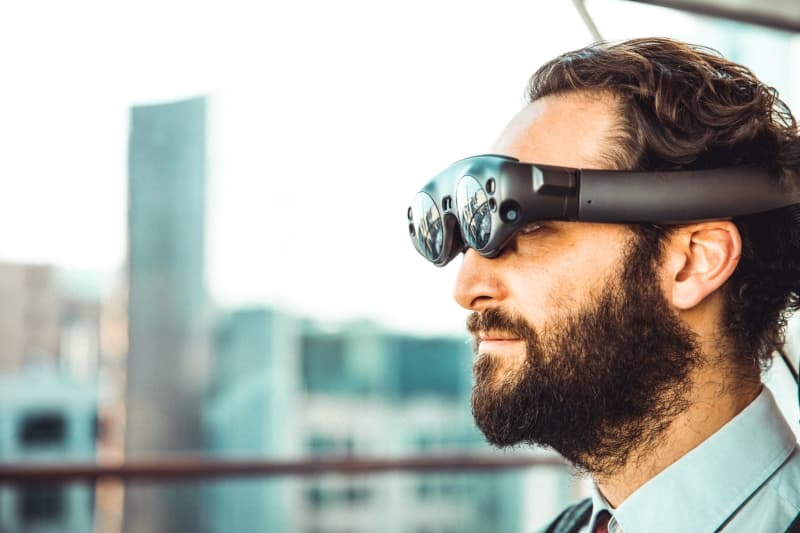The time has come where technology has advanced to the next level, and this advancement has a name: the metaverse. Hotels must be ready to adapt to this changing technology in order to remain relevant in the market. Beyond the social aspect of this newly conceived digital world, the metaverse represents a lot of potential for businesses, helping to overcome physical boundaries, while creating a space for enjoyment, meaningful interactions, and brand awareness.
But what exactly is the metaverse and what role does it play in hospitality? What trends are we seeing, and how can you increase your hotel revenue using the metaverse? All of these questions will be answered in this article so that you can prepare your property to thrive not only in the brick-and-mortar world, but also in the digital landscape. Keep reading to find out the secrets to take the metaverse by storm.
Table of contents
What is the metaverse?
Before the rise of social media internet in the 2000s, there was the Sims, a strategic life simulation video game. In this video game you could create towns, families and shops in a suburban household within a fictional city. Fast-forward to 2021 when Mark Zuckerberg announced the creation of his metaverse, rebranding the social media giant and associated products as Meta Platforms, Inc. with the intention of enhancing the lives of consumers through the use of technology.
While you could say the metaverse is still in diapers, waiting for its potential to be unlocked, it is an interactive virtual world that combines virtual reality and augmented reality technology to create a series of social interactions in the digital space. Users have the chance to participate in immersive social experiences through the use of an avatar, helping to bridge the gap between the digital and the real world.
Once users step inside this digital realm, they can chat and hang out with friends, play video games, explore once far-fetched locations across the globe, and so much more. It’s like real life version 3.0 or the Sims on steroids. Businesses can take advantage of this captive audience to create immersive experiences that enhance their brand in the physical world.
What role does the metaverse play in hospitality?
With the advent of the metaverse arrives a new challenge for the hospitality industry: virtual guests. An industry primarily based on service and the physical reception of guests is now being transformed into an experience-based industry, and hotels must be up to the challenge to make these experiences just as memorable as the physical ones.
There are many different roles the metaverse can play in hospitality, but one thing’s for sure: with the advent of new technology, hotels now have the possibility to create a metaverse hotel. Think of it as a virtual chain. You can have your physical location and your virtual location, and both should provide equally memorable experiences.
Learn about the top 10 technology trends in hospitality.
The possibilities are endless. You could provide virtual reality tours of the facilities; allow potential guests to visit the hotel with an avatar during the booking process; give access to virtual rooms to hold meetings or celebrations, and so much more. The platform gives hotels the ability to create new opportunities for consumers and travelers to compare products, and engage with their brand.
You may also like:
What are the metaverse trends in the hotel industry?
Now that you have a better idea of what the metaverse is, you may wonder what kinds of trends are popping up. It should be reiterated that real travel will not disappear, but the hospitality sector now has the opportunity to enhance real travel through virtual tourism, and connect with consumers in new ways through the use of technology.
Metaverse trends reflect real life technology trends
Just like in real life, the metaverse mirrors the technology that is already widespread in the hospitality sector, like virtual reality and augmented reality. Both of these technologies are used as a way of interacting with this alternative universe, but in real life can also be used to alter the way guests interact with their surroundings. Find out more ways AR technology can be used at your hotel.
On the other hand, VR technology can be used to create virtual tours, booking processes, and other travel experiences in the metaverse to enhance and complement your hotel’s in-person offerings.
Artificial Intelligence
Artificial Intelligence, or AI, is used in the metaverse to understand words, images, video and text, and understand how to respond to these stimuli while overcoming language barriers. Many of the 3D images, animation, speech and artwork are generated by AI. In the hospitality metaverse, AI can improve customer service, data analysis and other technology offerings at your hotel. Learn how AI is changing the hospitality industry.
Virtual hotel experiences
Hotels can use the benefits of the metaverse to create virtual hotel experiences both for guests and for potential guests, providing new ways to interact with your hotel brand without leaving their homes.
Inside this virtual world, visitors can reserve your hotel’s restaurant, take a tour of your facilities or surrounding visitor attractions, compare hotels, attend meetings and conventions and even go to museums. This provides a new target group for which to consider creating customized experiences to turn virtual clients into real-life paying clients.

How can you increase your hotel revenue using the metaverse?
The metaverse is still evolving and what it is today is by no means what it will be tomorrow, so while the potential is infinite, it still can be argued whether your hotel can actually use it to increase revenue. Let’s look at some of the hypothetical ways this tool can be used.
Sales and marketing
This new universe unlocks a new marketing channel with the possibility to reach a larger audience without having to invest money, only resources. Here, you can use the available technology to reach new potential guests that would have been otherwise difficult to reach. Sales representatives can even use this channel to search for potential clients, employing new strategies for reaching clients.
Upselling
In the real-world, upselling is a powerful marketing technique that helps accomplish revenue objectives. And, the metaverse is a great mechanism through which hoteliers can invite guests to visit different upgraded room options, explore different possible experiences, see different product and service offerings, and even get a sample of the hotel’s restaurant menu, all of which are great for driving ancillary revenue.
Discover five tools to help raise your upselling game.
Events and meetings
In the real world, many meetings and events have geographical constraints that make it so that not all possible attendees are able to attend. Event planners and conference organizers can capitalize on this world free of geographical barriers to create parallel events for networking, seminars, guided tours and more, available worldwide and with no need to travel.
These offerings can be complementary to the real-world offering and used to generate additional revenue. For example, you can offer VIP events, gatherings, tours or sell tickets to other virtual events that run in parallel and provide the opportunity to maximize revenue potential from events and meetings.
A new kind of loyalty program
Loyalty programs are a great way to keep guests coming back to your hotel. But what if you used the metaverse to create a new kind of loyalty program? Invite your guests to participate in activities in the metaverse or to participate in events and challenges to be eligible for special rewards, promotional codes or exclusive deals. This is a great way to give new benefits to loyalty program members while at the same time encouraging non-members to sign-up for the program.
Learn more about hotel loyalty programs.
Conclusion
In this article we’ve looked at the metaverse, what it is, its role in the hospitality industry, trends, and ways it can be used to increase revenue. This tool is in constant evolution, so its full potential is still unknown. Nonetheless, it is clear that it allows hoteliers the chance to expand their offerings to the virtual landscape, widening their reach and connecting with possible clients once unattainable – all while potentially boosting revenue.
Virtual tourists present a new target that allows hoteliers to overcome physical boundaries, while driving revenue and opening up new sales channels. With the right strategies in place, virtual tourists can convert into in-person tourists who have the potential of becoming brand advocates both in the virtual and in the real-world space.
In order to be successful in this new paradigm, hoteliers must be strategic, setting aside a marketing budget destined for this tool and identifying the revenue objectives that you would like to accomplish. Implemented correctly, alongside the best guest experience software for hotels, this channel can unlock endless possibilities, allowing you to be a step ahead of the competition. There is no better time than now to explore what the metaverse can do for your hotel.

2026 Hospitality Industry Outlook
Download now
Table of contents
Hospitality hot takes straight to your inbox



.webp)
